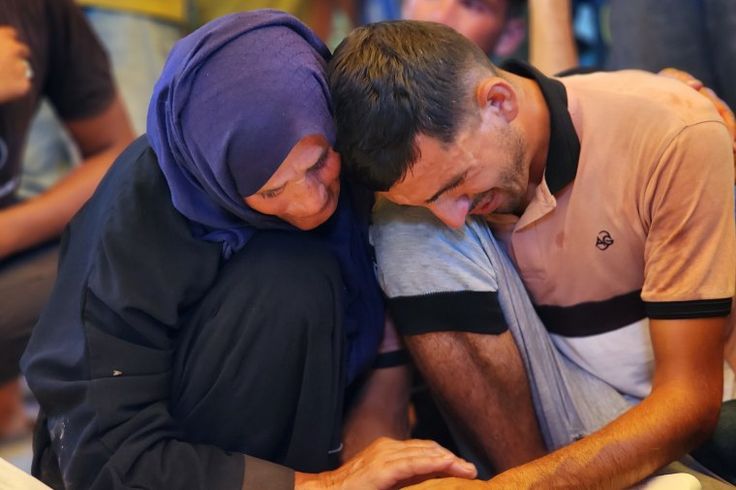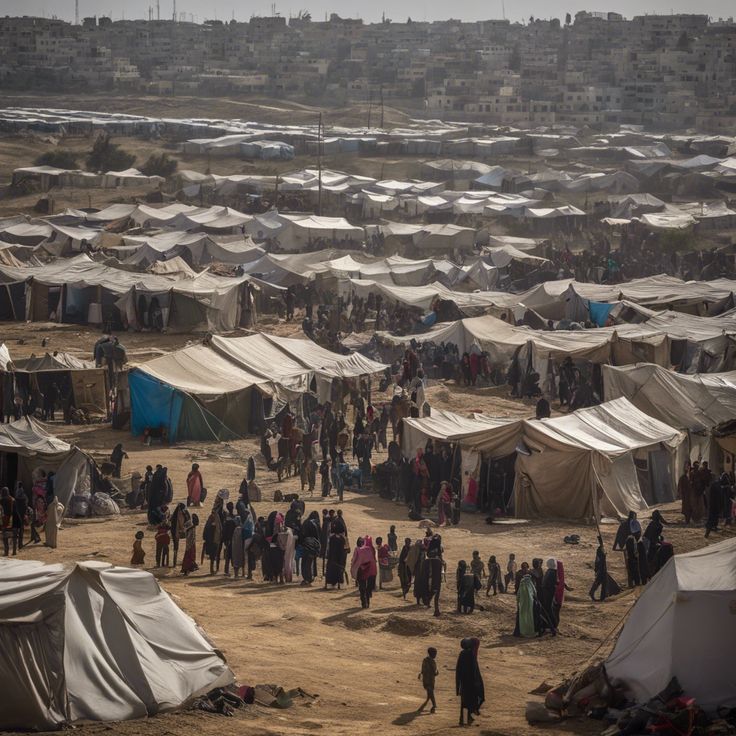Gaza’s Winter Crisis: Thousands Struggle to Survive Amid Freezing Conditions
As winter descends on the Gaza Strip, the humanitarian crisis deepens for the hundreds of thousands displaced by conflict. With homes reduced to rubble and critical infrastructure destroyed, families are now bracing against freezing temperatures in makeshift shelters and overcrowded tents. The combination of harsh weather, limited resources, and ongoing turmoil has created a desperate situation that demands urgent global attention.
A Winter of Suffering for Gaza’s Displaced Families
In Gaza, where nearly 80% of the population already lives in poverty, the winter season brings additional hardships. Since the escalation of conflict earlier this year, tens of thousands of families have been forced to leave their homes, seeking refuge in temporary shelters. The United Nations reports that more than 600,000 people are now displaced, with many living in makeshift camps lacking basic necessities.
These shelters, primarily tents and tarpaulin structures, offer little protection from the elements. Heavy rains have already caused flooding in many areas, soaking clothing and bedding. Meanwhile, cold winds sweep through the exposed camps, leaving families vulnerable to illnesses such as hypothermia and respiratory infections.
The Health Impact: Cold Weather Brings New Challenges
For Gaza’s displaced population, winter is not just uncomfortable—it is dangerous. Children, the elderly, and those with pre-existing health conditions are particularly at risk. Without proper insulation or heating, the freezing temperatures can quickly lead to hypothermia. Limited access to clean water and sanitation has also caused a rise in waterborne illnesses, compounding the public health crisis.
Local hospitals, many of which were damaged in the conflict, are struggling to cope with the influx of patients. Medical supplies are scarce, and doctors are overwhelmed. Aid organizations warn that without urgent intervention, the combination of cold weather, inadequate healthcare, and poor living conditions could lead to a humanitarian catastrophe.
A Crisis of Shelter: Living in Overcrowded Tents
The overcrowded conditions in Gaza’s displacement camps present additional challenges. Many families share tents with others, leaving little space for privacy or comfort. The lack of proper drainage systems means that even light rains can turn the camps into muddy quagmires, making daily life a struggle.
Children, who make up over half of Gaza’s population, are especially affected. Many are unable to attend school due to the lack of facilities, and their mental health is deteriorating from the stress of displacement and the constant threat of further conflict.
Aid Efforts Fall Short Amid Growing Needs
Despite the best efforts of humanitarian organizations, the scale of the crisis in Gaza has overwhelmed available resources. Aid workers are racing to distribute essential winter supplies, including blankets, thermal clothing, and heaters, but funding shortages and logistical challenges have slowed the response.
The ongoing blockade of Gaza has further complicated relief efforts. Limited access to the territory means that many essential items, such as building materials and medical supplies, are in short supply. International organizations have called for an urgent lifting of restrictions to allow for the free flow of aid and reconstruction materials.
Stories from the Ground: Voices of Resilience
Amid the bleak conditions, stories of resilience and solidarity have emerged from Gaza. Aisha, a 32-year-old mother of four, shares her experience:
“We lost everything in the bombing—our home, our belongings. Now we live in a tent with no heating. My children cry at night from the cold, but there is nothing I can do. I just hold them and pray for better days.”
Similarly, 10-year-old Sami, who dreams of becoming a doctor, describes the challenges of life in the camp:
“It’s hard to study when it’s so cold. We don’t have enough light in the tent, and sometimes the rain comes in. But I want to learn because I want to help people.”
These voices highlight the urgent need for international support to improve conditions in Gaza’s camps.
How the World Can Help
The international community has a critical role to play in addressing Gaza’s winter crisis. Here are some key actions that can make a difference:
- Provide Emergency Aid: Governments, NGOs, and individuals can contribute to organizations working on the ground in Gaza, such as the UNRWA, Red Cross, and Islamic Relief. Donations can help supply winter essentials like blankets, heaters, and clothing.
- Lift Restrictions on Aid: Advocacy for the easing of the blockade can enable the flow of critical supplies into Gaza, including construction materials for rebuilding homes.
- Raise Awareness: Sharing stories and updates about Gaza’s crisis can help keep the issue in the global spotlight, encouraging more people to take action.
- Support Long-Term Solutions: While immediate aid is crucial, long-term strategies for rebuilding infrastructure and addressing the root causes of Gaza’s crisis are equally important.

Key Statistics on Gaza’s Winter Crisis
- Number of Displaced: Over 600,000 people are displaced in Gaza, with many living in tents or makeshift shelters.
- Child Population: Children make up over 50% of Gaza’s population and are among the most vulnerable.
- Healthcare Crisis: Hospitals are operating at reduced capacity due to damage and supply shortages, leaving thousands without access to adequate medical care.
- Urgent Needs: The most pressing needs include winter clothing, blankets, heaters, and medical supplies.
Conclusion: A Call for Solidarity
The winter weather in Gaza has turned an already dire situation into a life-threatening emergency. For the hundreds of thousands living in tents, the cold is not just a discomfort—it is a daily battle for survival. The international community must act now to provide the aid and support needed to alleviate this crisis.
As individuals, we can contribute by donating, advocating, and raising awareness. Together, we can make a difference in the lives of Gaza’s most vulnerable and offer a glimmer of hope during these dark times. Let us not turn away from their suffering but instead stand in solidarity with the people of Gaza.
How You Can Help Today
- Donate to trusted organizations like UNRWA, Islamic Relief, or the Red Cross.
- Share this blog and spread awareness on social media using hashtags like #GazaWinterCrisis and #AidForGaza.
- Write to your representatives to advocate for increased humanitarian aid to Gaza.
Every action counts. Together, we can help ease the suffering and bring hope to those in need.


Pingback: "Die, Life, and Health: Reflections on the Circle of Being..
What i do not understood is in truth how you are not actually a lot more smartly-liked than you may be now. You are very intelligent. You realize therefore significantly in the case of this topic, produced me individually imagine it from numerous numerous angles. Its like men and women don’t seem to be fascinated until it is one thing to do with Woman gaga! Your own stuffs nice. All the time care for it up!